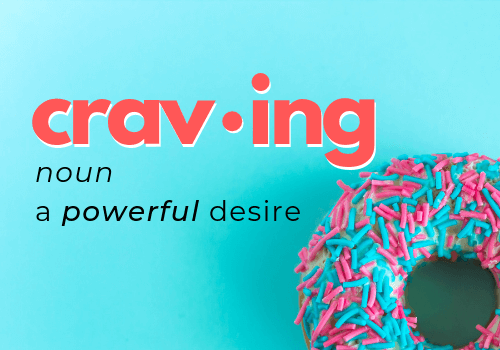It is most often assumed that the emergence of a food craving might be driven by some nutrient deficiency and while this has some truth to it, not entirely. Do you know what food cravings are?
A food craving is an intense almost insatiable desire to eat a specific type of food. Adrian Meule in his paper on the psychology of food cravings notes that we typically crave energy-dense foods: chocolate and other chocolate-containing foods are the most frequently craved foods, followed by other high-caloric sweet and savory foods. Cravings often occur in the late afternoon and evening. Interestingly, only the desire to eat high-calorie foods increases throughout the day, while the craving for fruits decreases.
God created us with a food system. Eat when hungry and stop when you are full. Hunger refers to the absence of fullness, that is, feelings of hunger are brought about by an empty stomach. Food cravings can be differentiated from feelings of hunger through their specificity and intensity. That is, while a food craving can usually only be satisfied by the consumption of a particular food, hunger can be alleviated by the consumption of any type of food. Do you see the difference? If you are craving a sandwich, you will only feel fine after eating the sandwich but when hungry, even a cup of milk will cure your hunger. The truth is that hunger and food cravings often can co-occur, however being hungry is not a prerequisite for experiencing a food craving.
The experience of a food craving is multi-dimensional. Physiologically, it is associated with several processes that prepare the body for ingestion and motivates food seeking and consumption such as increased salivary flow and activation of reward-related brain areas such as the striatum. It also includes cognitive (thinking about the food) and emotional (desire to eat or changes in mood) components. Finally, it often also includes a behavioral component of seeking and consuming food.
Both internal and external factors play a role in what you crave. For example, daily habits, hormones, dehydration, lack of sleep, and more are all possible causes for certain cravings. Many times, our brain is to blame, as it aims to keep us alive and healthy by ensuring everything remains in balance. However, our brains don’t always go about it the right way. Cravings for food can be triggered by brain regions that are responsible for memory, pleasure, and reward. When you have a food craving, the parts of our brain linked to memory and pleasure sensing are active.
Cravings are normal but when they get out of hand they can turn into undersirable effects like excessive weight gain. My two scents on this is to make sure you respect you cravings but do not let them control you. If you are craving and badly want to get that particular food especially one that is not very healthy, eat the healthy food first which your body will benefit from and later eat your crave. In that way you will have allowed your body crave and hunger to be satisfied.
Food craving can ought to be understood as a conditioned response that emerges because internal or external cues have been previously associated with intake of certain foods. Understand the source of the cravings and find a lasting solution.
Good luck
See you next Wednesday

Why do people crave for what is sometimes considered bad food, and it sounds close to stress eating
I rarely like classifying food as bad but our tastebuds are very alert for salty and highly sugary foods which are craved most and they get addictive